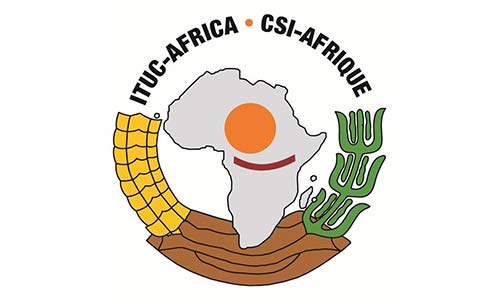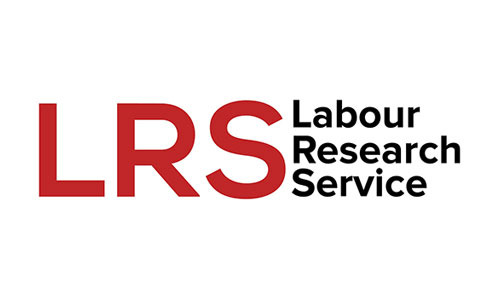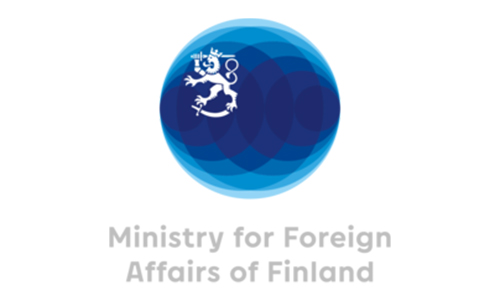The ongoing negotiations of the African Continental Free Trade Area (AfCFTA) Protocol on Investment provide a unique opportunity to make the intra-African investment work for women. The Protocol negotiated as part of Phase II will establish a continental legal framework regulating intra-African investment that fits African needs and aims to boost Africa’s economic growth.
But how do we ensure that African women are in a position to benefit from opportunities created by increased foreign direct investment (FDI)? This starts by designing a gender-responsive investment protocol and implementing policies that would promote gender equality.
There is no unique recipe for developing an agreement that will reduce gender inequalities and support women’s economic empowerment, but there are some necessary steps and some basic ingredients. These can be divided into three areas:
- the formulation of the Agreement with provisions aimed at promoting gender equality.
- the formulation of gender-responsive implementation policies.
- the monitoring and evaluation of its implementation and its impact on gender equality.
Step 1: Formulating a gender-responsive agreement
When negotiating and formulating the text of the Protocol on Investment, it is important to be aware that men and women have different interests as they engage in different sectors of activities, hold different types of jobs, manage different types of businesses, and have different roles in their communities. These differences – supported by evidence and gender-disaggregated data – encourage the drafting of specific provisions supporting gender equality or gender-neutral provisions that are likely to have a positive spillover effect on women.
Specific gender provisions are common practice in African trade agreements, with over 20 agreements including some 55 gender-related provisions[1]. What’s more, gender equality is one of the core objectives of the AfCFTA. Hence, the Protocol on Investment could include gender equality as one of its objectives to recognise that intra-African investment should not be conducted at the expense of women empowerment and that intra-African investment provides a venue for achieving gender equality in Africa. The Protocol could also address specific gender issues, such as gender-equal pay and non-discrimination in labour provisions or providing for the adoption of a gender equality policy within the corporate social responsibility obligations. The Protocol could also include gender equality in fair and equitable treatment. All these examples are provisions featured in existing investment agreements, most of them concluded by African state parties[2].
Gender-neutral provisions targeting sustainable development and balancing investment protection and investors’ rights and obligations are also relevant to make the Protocol work for women – provided that implementation policies support gender equality and women’s economic empowerment. For example, the Protocol could include provisions securing the right to regulate for sustainable development purposes or tying the definition of “investment” with a sustainable development component. It could also provide for the protection of fundamental human rights or mandatory social and environmental impact assessments. Lastly, the Protocol could ensure investors’ accountability in the dispute settlement framework. All these examples are also included in existing investment agreements concluded by African state parties[3].
Step 2: Formulating gender-responsive implementation policies
Once the Agreement is concluded, trade and investment reform may be required to enact policies fully aligned with the new commitments. To make an agreement work for women, it is important to be aware that men and women are differently impacted by trade and investment agreements. Existing gender inequalities, such as wage, poverty and education gaps, job segregation, unpaid care and domestic work, as well as obstacles to access finance, training and productive resources prevent women workers from accessing better-paid jobs and increase the vulnerability of women-owned businesses to being crowded out by FDI inflows. The extent of these gender gaps should be assessed with gender-disaggregated data and addressed in the investment and trade policies developed to implement the Protocol.
Designing gender-responsive policies that promote women’s participation in the economy is not enough if women are not given the appropriate tools and means to be able to fully participate in trade and maximise the benefits from the Agreement and the implementation policies. Hence, jointly with trade incentives to boost their participation, women should be provided with increased access to capacity-building programmes, mentoring, finance, and assets. These measures would encourage women to participate in intra-African investment as a qualified workforce involved in the African value chain. Women entrepreneurs would also be more prepared to face competition and expand their activities to foreign markets and seize new business opportunities brought by increased FDI inflows and trade.
Step 3: Assessing the impact of the Agreement on gender equality and women empowerment
As the final step to make the Protocol work for women, the impact of the Protocol on gender equality should be consistently monitored throughout the implementation of the AFCFTA. Corresponding measures should then be taken if this process identify remaining gender inequities. For example, the representation of female workers in the workforce engaged in foreign firms or firms involved in the value chains should be assessed, as well as the type of jobs held by women, their representation in leadership positions, and their wage and working conditions. In addition, the impact of the Protocol on women entrepreneurs should be assessed to examine whether the Protocol has contributed to closing or exacerbating gender gaps in the business ecosystem. At this stage, it is important to assess if structural barriers prevent women from benefiting as equally as men of the benefits brought by improved access to foreign markets and FDI inflows.
In conclusion, designing the intra-African investment legal framework is a delicate balancing act between the promotion of FDI inflows, economic growth, and sustainable development, all of which cannot be achieved if women are left out. African women represent a powerful economic force as they positively impact job creation, economic diversification, innovation, poverty reduction and development. However, existing gender inequalities exclude women from fully and equally participating in and benefiting from investment and trade activities. Not addressing these inequalities would lead to reverse consequences of FDI on sustainable development in Africa by exacerbating incomes inequality and limiting productivity, all factors reducing the attractiveness of a country for investors. Therefore, promoting women’s economic empowerment and gender equality through the intra-African investment regime would benefit all as women’s economic empowerment is one of the drivers of economic growth.
_____
[1] See Laperle-Forget, L. 2021. ‘Gender Provisions in African Trade Agreements: An Assessment of the Commitments to Reconciling Women’s Empowerment and Global Trade’. Working paper, Trade Law Centre.
[2] See, for example, Agreement Establishing the AfCFTA, Article 3; BIT between Rwanda and the United Arab Emirates, Article 4; BIT between Hungary and Cabo Verde, Article 2; The United States-Mexico-Canada Agreement, Article 14.17; Chile-Argentina FTA, Article 8.17; Chile-Canada FTA, Article G14 bis.
[3] See, for example, BIT between Nigeria and Morocco, Article 1, 14, and 15; BIT between the United States and Rwanda, Article 13; BIT between Ethiopia and the United Arab Emirates, Article 18; BIT between Botswana and Ghana, Article 4; BIT between Ethiopia and Brazil, Article 14; BIT between Brazil and Morocco, Article 13; COMESA Investment Agreement, Article 28.
You might like:
Lolita Laperle-Forget
Lolita Laperle-Forget holds a Masters in International Law and Politics (LL. M.) and a Bachelor of Laws (LL. B.) from the University of Sherbrooke, Canada. She's pursuing her studies for a PhD on the opportunities generated by trade and investment agreements for women entrepreneurs. Laperle-Forget worked at the World Trade Organization and focused her research on international trade law and trade policy analysis with a gender perspective. Her interests include sustainable development, women economic empowerment, trade facilitation, and intellectual property rights.




